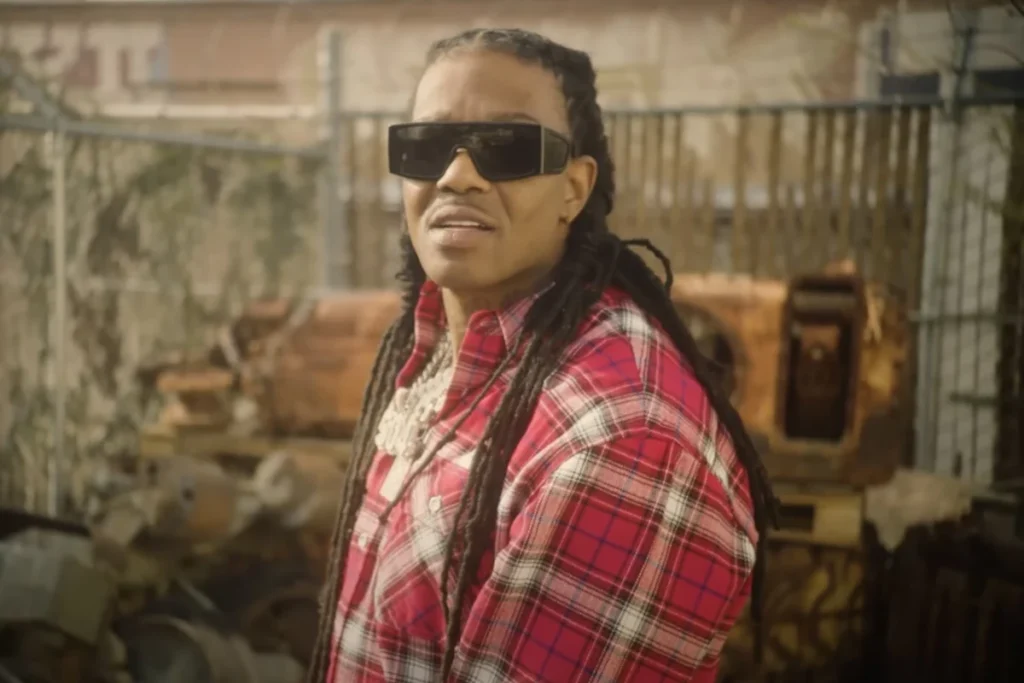Have you ever been afraid of Lucinda Williams? The renowned singer/songwriter can be scary when she wants to be. Just listen to “Changed the Locks,” from her 1988 self-titled album, which was full of love songs like “Passionate Kisses” and “I Just Wanted to See You So Bad” as well as regret-tinged backlashes like “Price to Pay” and “I Asked For Water (He Gave Me Gasoline).” “I changed the lock on my front door, I changed the number on my phone,” she sings. “I changed the kind of car I drive, I changed the kind of clothes I wear.” All those adjustments—just to get revenge on a man, just to make sure he never touches, or even gets near her, ever again. Few know their way around a country revenge song like Williams does.
She’s back in that blazing saddle right out of the gate on her new album Good Souls Better Angels, a sweltering garage-country record that wastes no time when it comes to the airing of grievances. “You can’t rule me,” she declares in her immediately recognizable groan on track one, instantly reminding her listeners why we fell for her smoky spell nearly 40 years ago. Whether she’s berating an abusive man in her own life or just a man abusing the powers placed upon him, this song is scathing. “Well the game is fixed, it’s plain to see,” she sings, practically growling. “I ain’t playin’ no more.”
Williams’ refusal to play along with the evils of today’s political landscape is what drives Good Souls Better Angels, her 14th studio album in four decades of monumental music-making. You won’t have to look hard or wide to find someone moaning about the relentless news cycle that’s been inescapable since 2016, but no one is singing about the omnipresent bad vibes like Williams. “Who’s gonna believe liars and lunatics / fools and thieves and clowns and hypocrites?” she asks (the answer: a lot of people, as we’ve learned) on “Bad News Blues.” “Gluttony and greed and that ain’t the worst of it / all the news you could read, all the news that’s fit to print,” she continues, poking fun at the New York Times’ centuries-old motto, which, now, in light of so much unflattering news, seems almost like a funny museum relic. The “bad news” is everywhere: in our “sinks,” “drinks,” “mail” and “trails.”
The deep-dive into darkness continues on “Big Black Train,” a metaphor for the fog of depression and anxiety that can roll in at the most inconvenient times and take over so many lives with no permission from its victims whatsoever—especially now. “I can hear it comin’ from miles away,” she sings of this “train.” “And I don’t wanna get on board.” She even travels beyond the “bottom” on one classic rock rager, “Down Past the Bottom,” where she sinks “lower and lower.” There’s more loneliness and grief on “Shadows & Doubts,” which feels especially pertinent for touring artists, but could apply to anyone suffering through these “dark new days”—one of many moments on this album that feels like a prediction of how 2020 would unfold. “Man Without a Soul” works best as a denouncement of the hate and stupidity that reeks from the Oval Office, but it could certainly be about any man in power who brings “nothing good to this world.” Lucinda Williams is unfearing, and she has absolutely no sympathy for evil-doers.
But this album is not a total downer. The best protest songs uphold some kind of optimism, and it seems Williams would agree with Sam Cooke that, despite all the wrongs that are infiltrating American society right now, a change is, in fact, “gonna come.” On the brooding sixth track, she vows to “pray the devil back to hell,” and on the much softer “When the Way Gets Dark,” she offers the encouragement, “Don’t give up / hang on tight / don’t be afraid.” She closes the album with a seven-minute prayer, a sure sign that not all hope is lost, singing, “Keep me in the hands of saints / Keep me with the good souls, with the better angels.” While so much of this album is steeped in anger, it just feels right that the title track is also the most joyful. Williams’ fury is the productive kind.
Good Souls Better Angels is like Williams’ other albums in that it’s not complicated—her songwriting has always benefited from plain-spoken poetry and blue-collar sensibilities. The stories on her 1998 landmark album Car Wheels on a Gravel Road occupied kitchens, diners and dusty paths, reveling in an imperfect past and the decidedly simple and relatable stories that have defined country music since its infancy. Her music has always been rooted in the bittersweet ways of the blues, and it has always been the music of a dedicated outlaw. But never before has Williams been this much of a daredevil, dead-set on stirring the pot until her arm gets tired and its contents burn and shrivel. Good Souls Better Angels is proof that even legends like Lucinda don’t just leave their best work behind them one day: They keep writing and making as long as they can, challenging people to listen to their newest music with the notion that it could be some of their best. Williams has certainly done some of her best handiwork with a blues-rock record that is so of-this-moment, it’d be crazy not to acknowledge it as one of the most important of the year so far.
Ellen Johnson is an associate music editor, writer, playlist maker, coffee drinker and pop culture enthusiast at Paste. She occasionally moonlights as a film fan on Letterboxd. You can find her yapping about all the things on Twitter @ellen_a_johnson.




